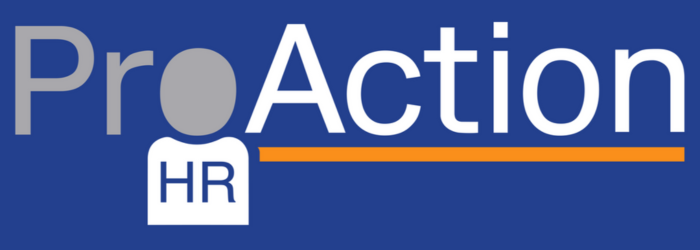Identity, environment & emotion: How will they impact our return to work?
An article by Joanne Nicholson, our in-house specialist in Occupational Psychology.
**********************************************************************************************
I think it’s fair to say over the past 12 months, most workers have shown amazing resilience adapting to the new working environments and conditions that Coronavirus restrictions have imposed on us all.
We will each have responded to this differently, as different as each of our personalities and home circumstances can permeate.
As returning to the workplace becomes within reach for many of those who have not been able to previously, so too will the myriad of emotions to accompany it. For some, returning to the workplace is one huge metaphorical jump for joy, and they simply cannot wait. For others, it’s another big change, and with change can come stress. So, this article considers some ways to help people move through the adversity, and thrive back at work.
There are three main themes that I’m going to discuss which will impact people to some degree; Identity, Environment, and Emotion.
Identity
We may all be able to resonate with portraying different personas for different environments. In the office you may be hardworking and serious, and when you are home carefree and wild. Some may be responsible carers at home, and being in the workplace is a chance to be more frivolous. These personas will have been impacted when we physically stopped being in the workplace. The home identity and work identity would have been challenged, as fulfilling both roles at the same time, and for some additional roles thrown in on top (eg. Homeschooling). A new identity may well have been created, and some may have recently had that challenged again, as children returned to school.
For some, during the past 12 months, other life events impacting their identity would have occurred; marriages, death, divorce, birth, new pets.
Think about the working day at home for some compared to being at a workplace;
No travel time = more free time
No travel time = no downtime between work and home
Not being at home means not being able to do quick household jobs (prepare dinner / put the washing on) at lunchtime
Being in the office means less time to exercise me and /or my pets
I won’t be there for my children and they will have to go into after school care again
And what if you are going to miss some of the changes that happened during restrictions? How will you feel about going back to the workplace then? What if a break from that commitment actually meant you were able to do a shorter day, and you really don’t want to go back to doing those long hours again, but you fear your boss will expect it from you.
As an individual: It’s important to spend some time thinking about this, think about the positives of returning to the office, how it made you feel as a person, and the qualities and challenges it brings you. Think about some of the things you will miss about working from home, and see if you can work them into your new routine of leaving the house, and what compromises you can make to keep some of those benefits going forward.
If you are a business leader or manager: Think about your staff and how each one will be facing their own challenges in returning to the workplace, and how you can help accommodate, empathise and encourage them. Help them with the transition back to work, help them ease back in by showing compassion to their individual situation.
Environment
The physical environment of an office/workplace is obviously very different from the physicality of people working from home. A lot of places of work have been ergonomically designed to benefit organisations and their people. However, one thing you can certainly say, is that there are a lot more people in an office than there are in your home. After such a long break, the physical presence of others can become overwhelming, the proximity of others can cause anxiety. This may be coupled with fears that people have been indoctrinated to stay 2m apart from others. This is going to be hard to get used to again for some.
The noise level in a place of work will be much greater than a home environment (homeschooling kids and dogs barking aside!) – to those with sensitive hearing, this can have a massive impact on the individual who may be completely overwhelmed, or struggle to concentrate, which may then impact their work.
The number of physical interruptions in the workplace will be different to at home (again, pets and children aside!) – but at home, you could mute a call, you could not answer a mobile, you could refuse a zoom call, however, someone turning up and standing at your desk is hard to ignore. There are obviously positives to these interruptions that many have missed when working at home, so again, what may be a negative for some may be a positive for others.
There will also be new special measures in the workplace to protect people (think Coronavirus restrictions and Health & Safety) which may impact people’s emotional and physical state at work, and for some may need a while to get used to.
The actual journey to work may also have changed, and worries about using public transport may be an issue.
Be aware of these physical impacts on individuals, and for those that can, make some adjustments and communicate with staff to show that you understand some of these issues, and what the expectations are on staff. If you understand and are flexible for people to return in a way that works for them, then let them know, and remove that pressure. It will pay you dividends in the long run, as your workers are your most prized asset.
Emotion
It is fair to say, that not many of us are going to return to the place of work the same person as we were when we were all restriction-free over 12 months ago. For the reasons mentioned above, there will be an emotional impact on many individuals. These emotions may include; guilt at leaving children/pets, anxieties about being amongst so many people, imposter syndrome, to name but a few.
Over the past year, many of us have been living in a perpetual state of flight or fight, with a big medical threat seemingly waiting for us at the end of our driveway… dictating how we live our lives. With this, we have been facing adversity, and we will respond differently. The prospect of stepping beyond our driveways, and into a place of work, will similarly create that fear and state of being alert – to fight or flight.
A person’s response to fight or flight will depend on their appraisal of the situation, and their perceived ability to cope with it. This requires us to engage with our thinking processes, our emotions, and our behaviours. What we don’t want is for employees to be faced with the prospect of returning to the workplace, thinking it’s going to be hard and incongruent to the beliefs they have developed over the past 12 months, and feel like they have no control over how to deal with it, therefore, have an inability to cope. This would be a recipe for stress.
What we should aspire to, on the other hand, is to help facilitate resilience. We want people to thrive back at work, so we need to arm people with the tools they need to face and deal with adversity. Successful attempts to change or adopt new behaviours increase self-confidence and self-belief.
So, have a think about how you can help improve your own, or your staff’s resilience.
Is this a course you can provide?
Is this manager training in compassion?
Is it a review of your culture to support individuality?
Is it to encourage a flexible return to work programme?
What about a phased return?
What will help build confidence and feelings of success to those who need it?
If you want any input to help build a back to the workplace programme to ensure all your people return in the most positive and productive way possible, you can talk to us. But ultimately, what any of us want, is not a simple return to the workplace - we want people to return and THRIVE – and that will take some thought.
For more information and guidance why not read our other recent articles: How to achieve a successful return to work and also Our Top 10 Tips Countdown to a Successful and Positive Return to the Workplace.
You can also book a Discovery Call with us to find out more.
Joanne is an MSc qualified Occupational Psychologist and works with organisations to identify individuals’ key drivers and engage support services to ensure successful delivery of large-scale projects. After starting her career working in psychology research for University College London and the British Psychology Society, she then applied these skills in financial services where she was responsible for managing insurance products at organisations like the AA and ING banking. Joanne has more recently developed a range of workshops to address the psychological aspects of returning to work.


